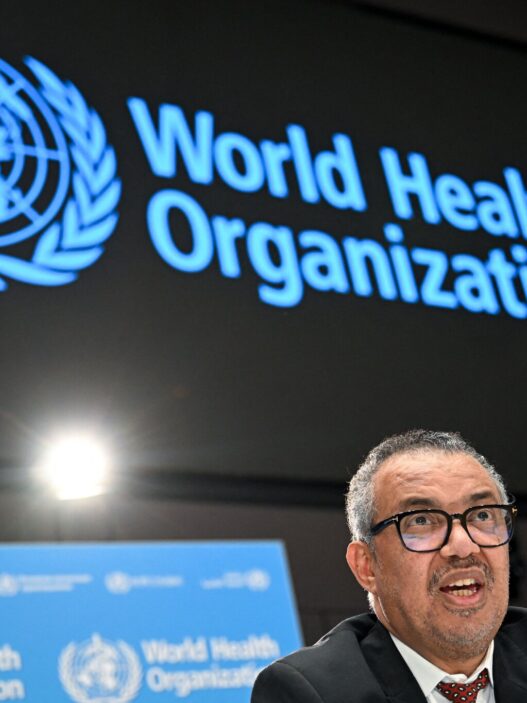A new study published in JAMA Network Open has found that long, grueling shifts for medical interns lead to poorer sleep, decreased well-being, and reduced cognitive performance, raising fresh concerns about the impact of sleep deprivation on both doctors and patient care.
Researchers used the Oura Ring 3, a wearable sleep tracker, to collect real-time physiological data, providing the most detailed look yet at how different shift schedules affect medical interns’ health and performance.
The study compared traditional 24-hour on-call shifts to “float” schedules, where interns worked shorter, more frequent shifts without overnight duties.
The results suggest that the traditional structure of medical training may be undermining both intern health and hospital safety, fueling calls for reform in how hospitals structure residency programs.
How the Study Was Conducted
The study aimed to examine the effects of sleep deprivation and long work hours on medical interns by analyzing three key areas:
- Sleep Quality – How much sleep interns got and how restorative it was.
- Well-Being – How work schedules affected stress and burnout levels.
- Cognitive Performance – How shift length impacted focus, reaction time, and decision-making.
To ensure precise and objective data collection, researchers equipped interns with Oura Ring 3 devices, a wearable tracker that continuously monitors sleep cycles, heart rate, and body temperature.
This marked a significant shift from previous studies that relied on self-reported sleep data, which can often be inaccurate due to recall bias.
Participants were divided into two groups:
- Interns working traditional 24-hour on-call shifts
- Interns on a “float” schedule, with shorter shifts and no overnight duties
The Oura Ring data provided a clear picture of the impact of shift length on interns’ physical and mental health.
Key Findings: The Cost of Exhaustion
Interns working 24-hour shifts had significantly worse sleep quality
- Those on traditional shifts slept less overall, had fewer hours of deep sleep, and showed more frequent disruptions during rest.
- Heart rate variability data suggested higher levels of physiological stress, indicating that long shifts were causing more than just fatigue—they were actively harming the body’s recovery process.
Interns on longer shifts had lower cognitive performance
- Interns working extended shifts performed worse on psychomotor vigilance tests, a standard measure of reaction time and attention.
- Response time slowed, and error rates increased, suggesting that long shifts impair decision-making ability in high-stakes hospital environments.
Interns with shorter shifts reported better well-being
- Those on the float schedule experienced less stress and burnout compared to those on 24-hour shifts.
- Mood tracking data collected through the study indicated that long shifts negatively impacted mental health, with interns reporting higher anxiety and emotional exhaustion.
The data aligned with previous studies linking sleep deprivation to increased medical errors, longer patient recovery times, and higher risks of physician burnout.
Why This Matters: A Patient Safety Concern
The findings reinforce long-standing concerns that overworking medical interns is not just bad for their health, it puts patients at risk too.
- Fatigue-related errors have been linked to misdiagnoses, medication mistakes, and delayed responses in emergency situations.
- Sleep deprivation slows reaction times, making it harder for doctors to make critical, life-saving decisions under pressure.
- Long-term exposure to high-stress, low-sleep conditions increases physician burnout, leading to higher turnover rates in hospitals and staffing shortages.
With burnout and mental health struggles already a crisis in the medical profession, this study suggests that current training models may be doing more harm than good.
The Case for Reform: Should Hospitals Rethink Shift Structures?
The study’s use of wearable technology like the Oura Ring 3 adds strong, objective evidence to the argument that medical training needs urgent reform.
Experts suggest that hospitals should:
- Reevaluate shift lengths, especially for first-year interns who are still adjusting to hospital workflows.
- Prioritize sleep health, recognizing that well-rested doctors make faster, more accurate medical decisions.
- Consider phase-out strategies for 24-hour call shifts, replacing them with shorter, strategically structured rotations that maintain patient care coverage without jeopardizing doctor well-being.
Some hospitals have already experimented with alternative schedules that cap shifts at 16 hours or less, showing promising results in both intern performance and patient safety outcomes.
With new data confirming the link between shift length, sleep quality, and cognitive function, pressure is growing for more institutions to follow suit.
A Turning Point for Medical Training?
For years, the culture of medical internships has emphasized endurance over well-being, with young doctors expected to “push through” exhaustion as part of their training.
But new research suggests that these traditions may be outdated and dangerous.
With real-time biometric data now proving the impact of long shifts, the question becomes:
Will hospitals listen?
If patient safety and physician health are truly the priority, then the era of 24-hour shifts may finally be coming to an end.























